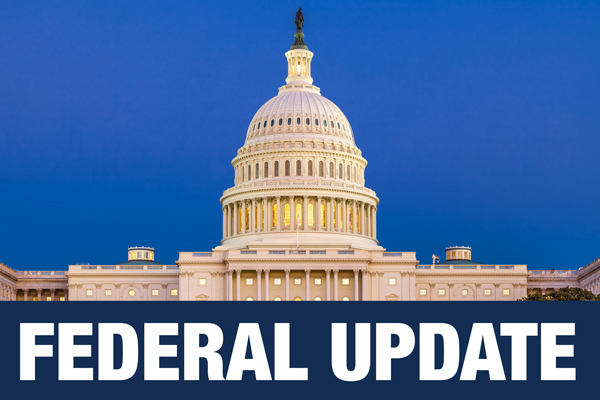 U.S. Senator Dianne Feinstein has introduced an updated proposal to provide long-term and short-term solutions to the state’s historic drought. The California Chamber of Commerce supports the effort to move drought relief legislation this year and improve the ability to capture and store water in wet times for use in dry ones.
U.S. Senator Dianne Feinstein has introduced an updated proposal to provide long-term and short-term solutions to the state’s historic drought. The California Chamber of Commerce supports the effort to move drought relief legislation this year and improve the ability to capture and store water in wet times for use in dry ones.
Feinstein’s proposal includes provisions to allow more water to be captured and stored during the drought, and to promote both the building of new reservoirs and increasing the capacity of existing ones.
In introducing the bill, Feinstein estimated that if all the projects identified in the bill were completed, nearly 1.4 million acre-feet of “new” water could be made available.
The CalChamber and other business, grower and water groups from the Western states have previously called for action on bipartisan Western water and drought relief legislation.
There is a growing consensus that Western water users need every tool available to survive and recover from the current drought and to prepare for the hard, dry years that the future may hold.
Water Storage Projects
To help store water during wet years for use in dry ones, the bill:
• Authorizes $600 million for water storage projects in California and other Western states. These may include both federal projects (Shasta) and nonfederal projects (Sites, Temperance Flat, Los Vaqueros).
• Sets deadlines for the federal Bureau of Reclamation (Bureau) to complete feasibility studies to allow Calfed storage projects to compete for the $2.7 billion of bond funding that California’s Proposition 1 earmarked for water storage. The Calfed Bay-Delta Program is a collaboration of 25 state and federal agencies to improve the state’s water supply and the ecological health of the San Francisco Bay/Sacramento-San Joaquin Delta.
• Updates U.S. Army Corps of Engineers dam operations to increase water supply while reducing flood risk.
Emergency Operations
Emergency provisions to make water delivery more efficient during the drought include the following. The provisions would last as long as the Governor’s drought declaration is in effect or for two years, whichever is longer.
• Improved data to operate pumps at higher levels when no fish are present and reduce pumping levels when fish are nearby.
• Allow agencies to keep the additional water they are able to pump during winter storms.
• Require agencies to explain pumping reductions due to the Delta smelt biological opinion. The agencies must explain decisions to reduce pumping to protect the Delta smelt based on improved data rather than relying on intuition.
• Require agencies to maximize water supplies consistent with applicable laws and biological opinions. Agencies cannot harm fish in violation of biological opinions, but should try to increase water supplies.
• Open Delta cross-channel gates more often so that water from the Sacramento River is used to control salinity instead of water released from the Central Valley Project.
Three provisions aim to make greater use of water transfers, a voluntary, market process to move water to where it is truly needed.
• Extend by five months the period within which water transfers may take place. By making the transfer window the months of April through November instead of the current July through September, water transfers can be available during the spring planting season.
• Allowing 1:1 water transfer ratio, versus the past practice of requiring water users to send more water downstream than can be pumped out. Environmental law and biological opinions still must be followed.
• Expediting review of water transfers and construction of temporary barriers.
Other Provisions
Other sections of the bill provide:
• Desalination. Reauthorizes the Desalination Act and authorizes $50 million over five years for desalination research projects, such as improving existing technology, reducing environmental effects of seawater desalination and developing next-generation technologies to reduce the cost of desalination. Also authorizes $50 million over five years for feasibility and design of sea and brackish water desalination projects.
• Assistance for drought-stricken communities. Rural and disadvantaged communities with fewer than 60,000 residents may apply for grants through the Bureau to help stabilize water supplies.
• Water recycling, conservation, efficiency. Authorizes $200 million in increased funds for the Bureau’s water recycling and reuse program. Authorizes a U.S. Environmental Protection Agency program to label water-efficient products for consumers, similar to the Energy Star program. Authorizes a Department of the Interior program to establish an open system with data on water quality, climate and weather effects, and erosion. The system would be accessible to the public online.
• Additional funding. Authorizes $200 million for a loan guarantee program to allow water districts and municipalities to leverage loans and loan guarantees for water projects. Also increases funding by $150 million for the Bureau’s WaterSMART program.
• Endangered/threatened fish and wildlife. Authorizes $55 million for short-term, low-cost proposals to protect and assist in recovering endangered or threatened fish populations, including Delta salmon and smelt.
What’s Next
Senator Feinstein’s bill will be taken up soon by the U.S. Senate Energy and Natural Resources Committee, chaired by Senator Lisa Murkowski (R-Alaska).



